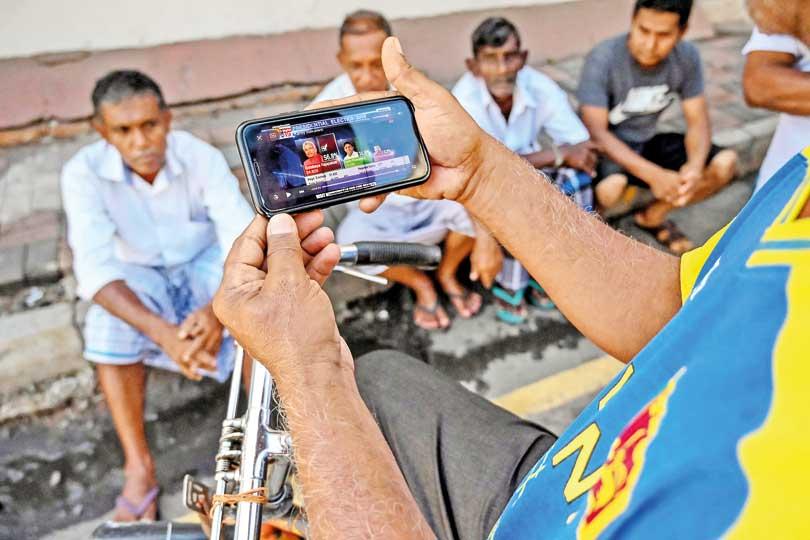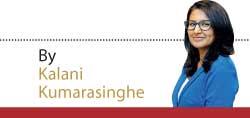04 Dec 2019 - {{hitsCtrl.values.hits}}


Ahead of the US presidential election, internet giants such as Facebook and Alphabet Inc. owned Google are facing growing pressure to suspend political advertisements carrying misleading and false information. Across the world, democracies are grappling with social media platforms which have become increasingly popular as a conduit for electoral manipulation and mass surveillance. Freedom on the Net 2019, a report published by a non-profit think tank, released earlier in November, noted global internet freedom declined for the ninth consecutive year as a result of these trends, even describing the situation as a crisis.
While social media at times served as a platform for discussion and engagement, it is now tilting dangerously towards manipulation, as Sri Lanka has observed on a number of occasions. The 2019 presidential election campaign was no different. In its preliminary report, the European Union Election Observation Mission to Sri Lanka highlighted the State’s failure to update transparency and financing regulations, and its effective application to the online sphere, which were vital to free and fair elections.
The Commonwealth Observer Group led by former Ghanaian minister of interior Prosper Bani, noted that recommendations to tackle social media would be included in future reports. Speaking to Daily Mirror he said that social media platforms are integral parts of the media landscape. “Any regulatory framework we have recommended for the government in managing both private and public media must include the management of social media as part of the media landscape in Sri Lanka,” he said.
“The scope may be immense and without any boundary, but that is the challenge every country in the Commonwealth must begin to address. Sri Lankans in London, New York or Beijing are feeding into the social media consumption in Sri Lanka. Social media by and large doesn’t have borders, so it’s very difficult to control it within your border,” he said, highlighting the severity of the challenge ahead. When asked if the Commonwealth was attempting to address this issue, he said the organisation continued to raise the matter when working with Commonwealth countries. “We have raised it in a couple of Commonwealth countries as well as international platforms. The Commonwealth is looking at it, especially in terms of contributing to support countries to address this issue. Details of this will be included in the final report,” Mr. Bani said.
Social media tilting dangerously towards manipulation
Meanwhile, the Information Technology Society of Sri Lanka (ITSSL), an advocacy group based in Colombo, noted that a total of 1,593 complaints and incidents were reported to the organisation during the election period that began from October 1. The ITSSL looked into the complaints lodged to the society’s email address as well as other incidents identified by the organisation’s monitoring groups.
“Hate speech and false information pertaining to presidential candidates as well as mudslinging aimed at candidates were most common incidents reported. We also observed targeted posts containing false information about the Millennium Challenge Cooperation (MCC) agreement, which were mostly shared, while reports of false news and hate speech were recorded at average levels,” ITSSL Chairman Rajeev Yasiru Mathew said.
The organisation observed that fake news and hate speech were widely shared on Facebook, making it the most used social media platform to disseminate malicious and manipulative content during this period. “False information was shared incessantly sans verification. We were unable to record the number of times such posts were shared as we only focused on an incident and observed how many instances such posts were shared. Posts pertaining to one such incident were shared at least 400-500 times,” Rajeev said.
Ahead of the poll, the Elections Commission urged organisations to refrain from posting political content on social media platforms, abiding by Sri Lankan laws, and to refrain from mudslinging which could be used to swing voters. Meanwhile, the People’s Action for Free and Fair Elections (PAFFREL) requested Facebook to control paid campaigning on its platform during the ‘cooling period’ where political propaganda for the election ceased.
“We inquired of PAFFREL’s requestfrom Facebook representatives in Sri Lanka. In response, the representative informed he was unable to act independently on such a request, given that it was a request from a sole organisation. Furthermore, the representative added that freedom of expression remained a priority for Facebook,” Rajeev recollected. He believes a respected organisation such as PAFFREL issuing such a statement in the first place without a proper understanding of social media was regrettable.
When asked of the organisation’s take on the Telecommunications Regulatory Commission of Sri Lanka (TRCSL) or the Elections Commission possessing authority to control or regulate content on social media, Rajeev said neither entity had authority over social media. “We don’t believe either of these bodies possesses the power to control social media. Throughout last year, there were several occasions when social media were under temporary restrictions. The intervention was made by TRCSL. Restrictions were imposed at a time when there were no corresponding emergency laws in place. Without such a law, TRCSL cannot restrict social media as it did since it has no such authority. What it did instead was use its authority to command service providers to restrict certain IP addresses thereby restricting social media,” he explained. “As there is no law to impose restrictions on social media, what we believe as an acceptable solution is to restrict social media, if required by the State, through a court order. This will be more coherent and transparent,” Rajeev said.
The society also observed that a number of individuals and entities used the election to accumulate data in terms of surveys and polls through websites and other domains. These platforms required the entry of National Identity Card (NIC) numbers and other personal data. “The Elections Commission, for instance, has a mechanism where a voter can enter their NIC number to obtain registration details. This is just one instance where NIC numbers can be used to accumulate private data. We observed several entities collecting such data. The public remains blind to these threats. The websites we observed however had no details on record as to why they were collecting such data or who was collecting them,” the observers underscored.
Digital literacy among Sri Lankans at bare minimum
“There were several applications introduced by presidential candidates. What we observed is that the privacy policy form in these applications was virtually blank. For some applications, there was no privacy policy at all. A privacy policy indicating how and when data is obtained, must be available to the user, as it is the accepted standard. However, apps introduced by candidates were in violation of rights to privacy of an individual to which the public are blind,” the society cautioned.
“Digital literacy among Sri Lankans is at a minimal level. There is no comprehensive component in the education system to address digital literacy. For instance, doctored images of candidates – which are visibly and obviously edited – have been shared hundreds of times among people. They even refuse to believe such images have been doctored. This alone shows how vulnerable people are when it comes to digital literacy, regardless of how educated or learned they are. We have made continuous requests to educate children on digital literacy before providing them tabs. There is no use in learning the history of information technology if people aren’t aware of how to use it properly,” Rajeev warned.
The organisation believes that while there is no requirement to introduce laws to regulate or control social media, there are various efforts to control social media, mostly led by those with vested interests who wish to silence the public and prevent civic discussions on a level playing field. “Existing laws are competent to deal with crimes and other issues propagated through social media. The laws for crime, fraud and corruption are sufficient to deal with social media as well. There is no need to even amend existing laws. What is required however is the data protection bill, one that is favourable to the public. There is also a requirement to address cyber crimes by individuals and organisations, for which legislation is required. In addition, digital policies must be formulated to complement this entire process,” he opined.
28 Nov 2024 6 hours ago
28 Nov 2024 7 hours ago
28 Nov 2024 8 hours ago
28 Nov 2024 9 hours ago
28 Nov 2024 28 Nov 2024